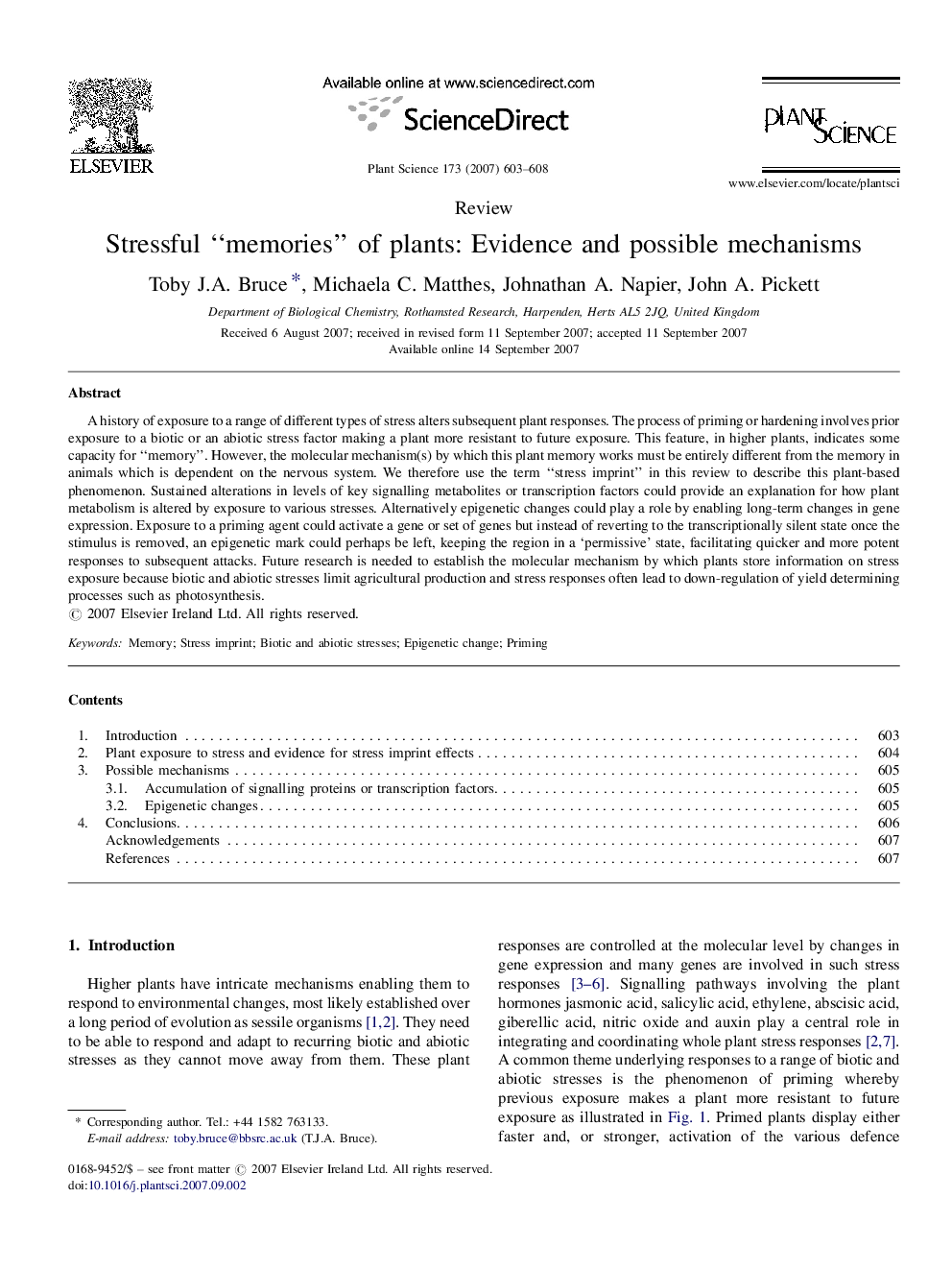| Article ID | Journal | Published Year | Pages | File Type |
|---|---|---|---|---|
| 2017922 | Plant Science | 2007 | 6 Pages |
A history of exposure to a range of different types of stress alters subsequent plant responses. The process of priming or hardening involves prior exposure to a biotic or an abiotic stress factor making a plant more resistant to future exposure. This feature, in higher plants, indicates some capacity for “memory”. However, the molecular mechanism(s) by which this plant memory works must be entirely different from the memory in animals which is dependent on the nervous system. We therefore use the term “stress imprint” in this review to describe this plant-based phenomenon. Sustained alterations in levels of key signalling metabolites or transcription factors could provide an explanation for how plant metabolism is altered by exposure to various stresses. Alternatively epigenetic changes could play a role by enabling long-term changes in gene expression. Exposure to a priming agent could activate a gene or set of genes but instead of reverting to the transcriptionally silent state once the stimulus is removed, an epigenetic mark could perhaps be left, keeping the region in a ‘permissive’ state, facilitating quicker and more potent responses to subsequent attacks. Future research is needed to establish the molecular mechanism by which plants store information on stress exposure because biotic and abiotic stresses limit agricultural production and stress responses often lead to down-regulation of yield determining processes such as photosynthesis.
